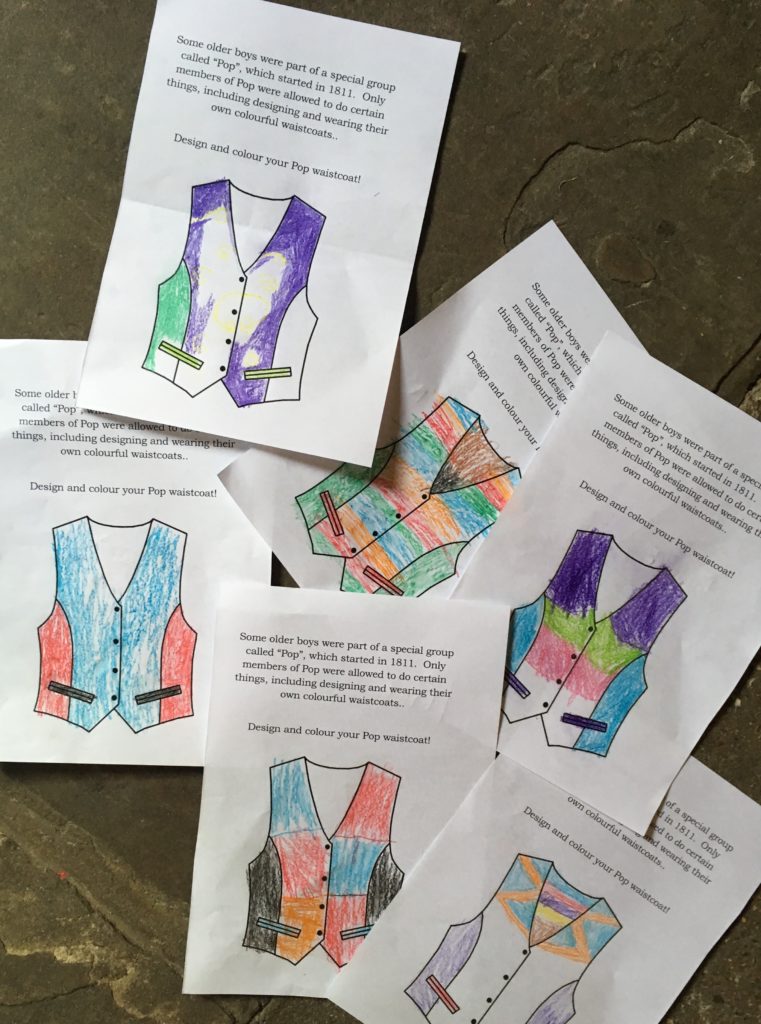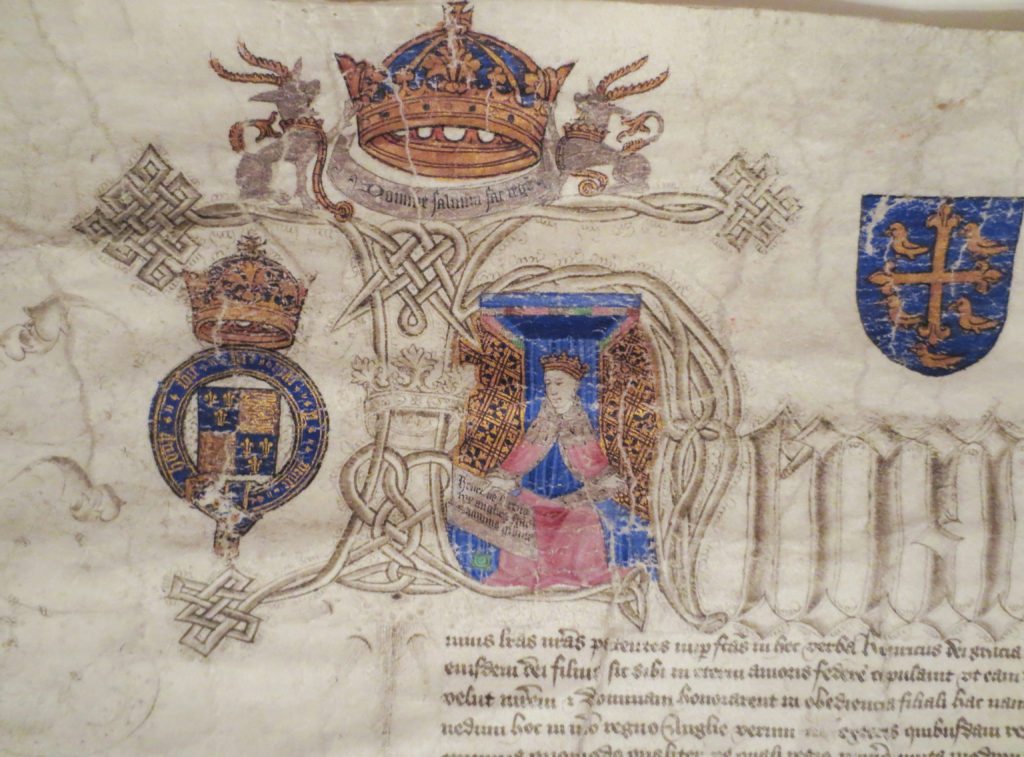I once had to disappoint a very excited young Etonian who came into the Museum asking me where the four-foot duck was on display. He had misheard one of his peers, of course: we don’t have a duck which is 1.2m tall! But one of the most iconic specimens in Eton’s Natural History Museum, and certainly the most inquired after by Old Etonians who return to the Museum, sometimes after many years, is our duckling with four feet! The duckling is an example of a conjoined twin, as is our equally iconic two-headed kitten. Both are examples of what used to be known as Siamese twins but are now more properly referred to as conjoined twins. This phenomenon occurs when a single embryo divides partially but not completely. In humans this is a very rare event (say, 1 in 100,000 or so) but it is reported to be more common in ducks.
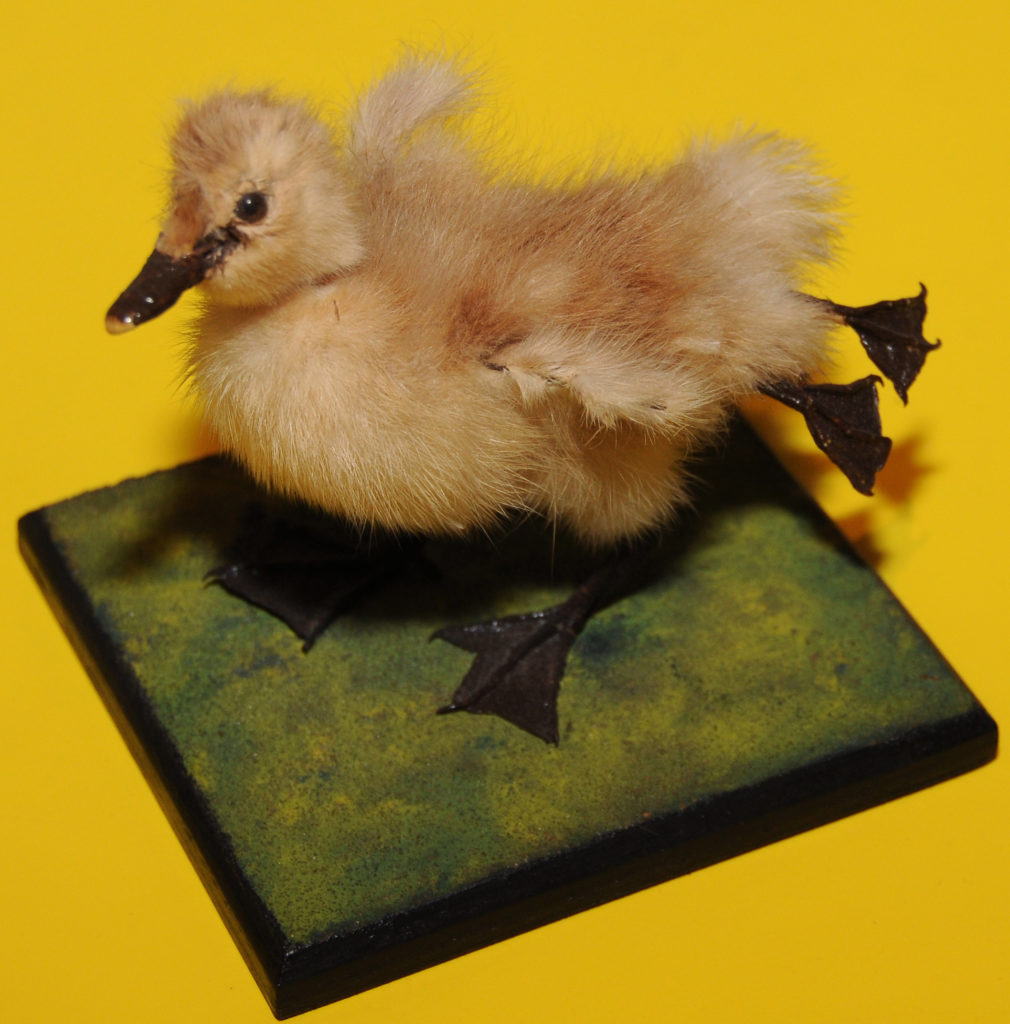
As we approach Easter, we might reasonably turn our thoughts from emblematic ducklings and kittens to eggs. The Museum’s Newall egg collection dates from the last quarter of the nineteenth century and is drawn from around the northern hemisphere with eggs from Alaska to Archangel down to the Bahamas, Astrakhan, Texas and Southern Spain.
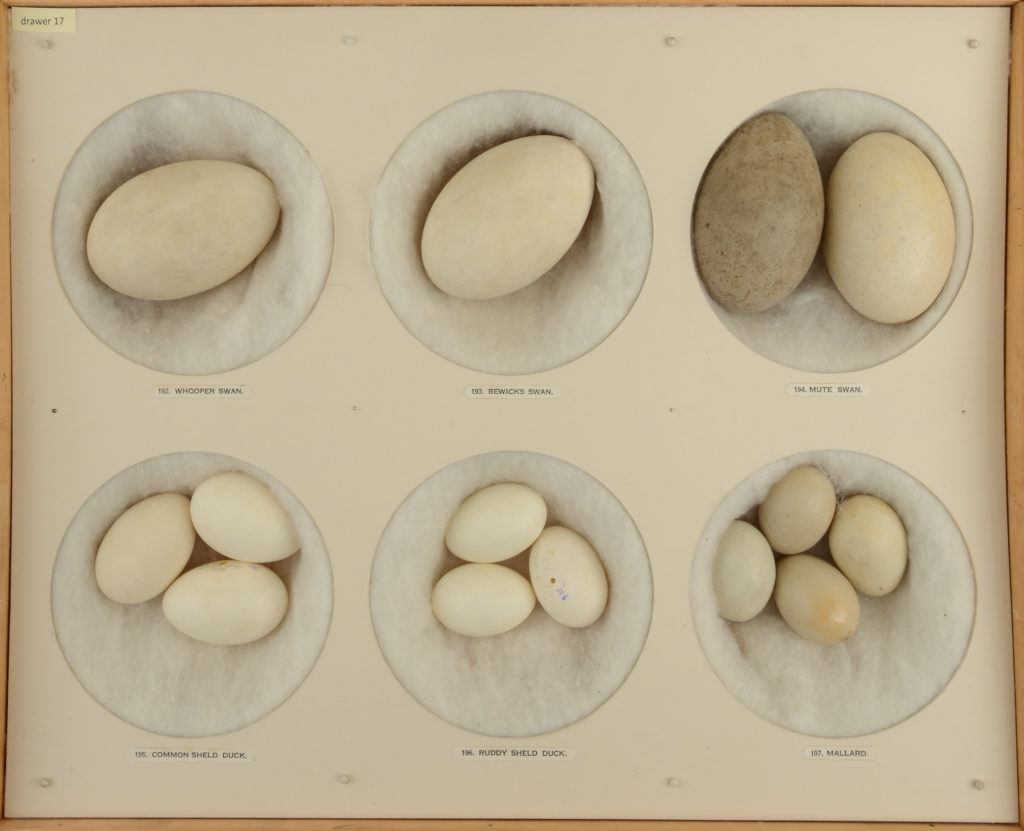
Data-rich historical collections such as this are especially important to scientists as a source of information on the lives and past distributions of bird populations. Oologists use these collections to study phenology, the timing of the seasonal laying of eggs in relation to climate change and other factors. Collections can also ascertain whether a species’ range has changed by examining where the nests were found.
Egg collectors were fascinated by the variety of sizes, shapes and patterns seen in eggs. Guillemot eggs in particular were noted for their variability, and it is said that variations in pattern and colouring allow adults to recognise their own eggs within a dense colony of sea birds. The Eton Natural History Museum has a collection of over 90 such eggs to make precisely this point.
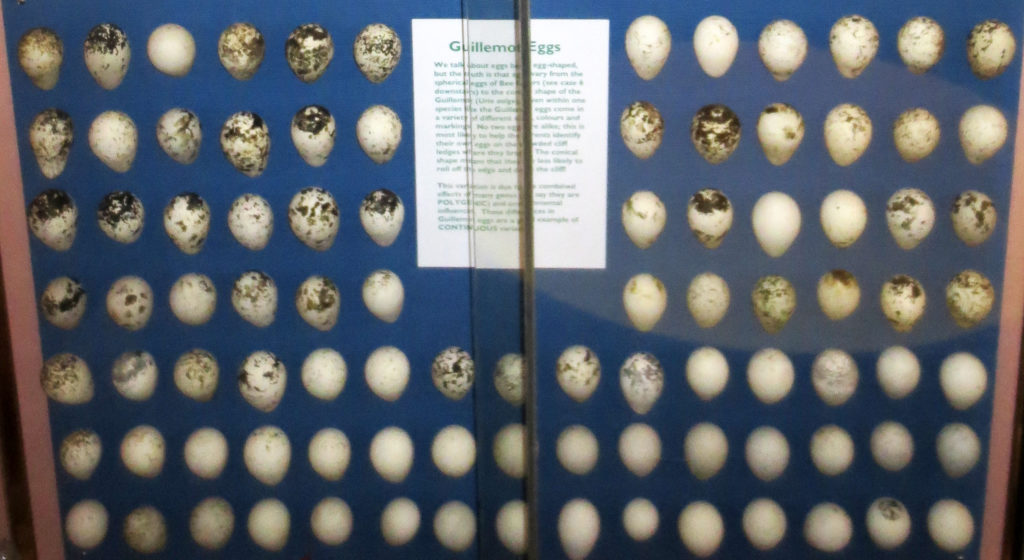
Have a Happy Easter!
George Fussey
Curator, Natural History Museum
The Eton College Natural History Museum in South Meadow Lane is open to the public on Sundays, from 2.30pm until 5pm; we are closed Easter Sunday. It is Berkshire’s only dedicated Natural History Museum, a family friendly museum with over 17,000 objects and features numerous displays showing the wildlife of the Thames Valley.


